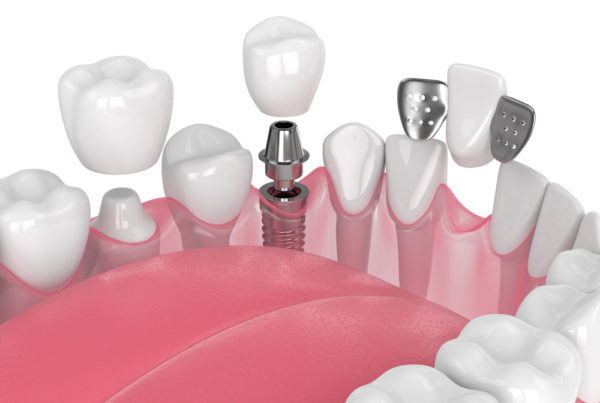Dental implants are a popular and effective solution for replacing missing teeth. They provide a stable and natural-looking restoration that can improve oral health and self-confidence. However, proper maintenance is crucial to ensure dental implants’ long-term success. This article will explore essential tips for maintaining dental implants and maximizing their lifespan.
Practice Excellent Oral Hygiene:
Maintaining good oral hygiene is vital for the success of dental implants. Like natural teeth, implants can accumulate plaque and tartar, leading to gum disease and failure. Follow these hygiene practices:
Brushing:
Brush your teeth at least twice daily using soft-bristle and non-abrasive toothpaste. Pay special attention to the implant area, brushing gently and thoroughly.
Flossing:
Use dental floss or interdental brushes to clean between the implants and surrounding teeth. This helps remove food particles and plaque buildup.
Regular Dental Check-ups:
Visit your dentist regularly for professional cleanings and examinations. Dental professionals can detect any issues early and provide appropriate treatments to maintain the health of your implants.
Avoid Harmful Habits:
Certain habits can damage dental implants and compromise their longevity. Avoid the following habits:
Chewing Hard Or Sticky Foods:
Limit the consumption of hard or sticky foods that can exert excessive force on your implants. This includes items like ice, hard candies, and sticky caramels.
Grinding Teeth:
If you have a habit of teeth grinding (bruxism), it is essential to address it. Grinding can exert significant pressure on dental implants, leading to implant failure. Consult your dentist about wearing a nightguard or finding suitable treatment options.
Smoking And Tobacco Use:
Smoking and tobacco use harm oral health and can impair the healing process after implant surgery. They also increase the risk of implant failure. Quitting smoking or avoiding tobacco products is highly recommended for the long-term success of dental implants.
Maintain A Healthy Lifestyle:
A healthy lifestyle plays a significant role in maintaining the success of dental implants. Consider the following factors:
Balanced Diet:
Consuming a well-balanced diet rich in vitamins and minerals promotes overall oral health. Adequate nutrition supports healing and helps maintain healthy gums and bones around dental implants.
Limit Alcohol Consumption:
Excessive alcohol consumption can contribute to oral health problems, including gum disease. It is advisable to limit alcohol intake for optimal oral health and implant maintenance.
Stress Management:
High-stress levels can affect oral health, leading to bruxism and other issues. Implement stress management techniques such as exercise, meditation, or counseling to reduce stress and protect dental implants.
Address Concerns Promptly:
You must contact your dentist promptly if you experience any signs of potential implant issues, such as pain, swelling, or mobility. Early intervention can prevent further complications and ensure the long-term success of your dental implants.
The Bottom Line
Maintaining dental implants is essential for their long-term success and your overall oral health. By practicing excellent oral hygiene, avoiding harmful habits, maintaining a healthy lifestyle, and addressing concerns promptly, you can maximize the lifespan of your dental implants. Remember to follow your dentist’s recommendations and attend regular check-ups to ensure the health and longevity of your beautiful smile. With proper care and maintenance, dental implants can continue to enhance your quality of life for years.



